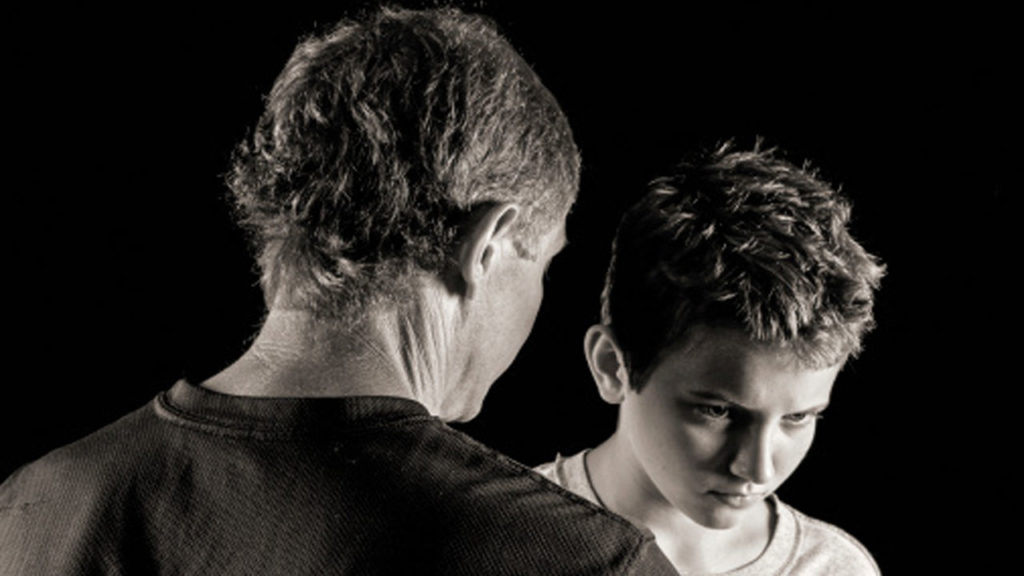The story about my dad and the police car chase was the one that always got people’s attention.
“That’s crazy,” they would say. I would suppress a smile and gin up some spiritual-sounding reason for bringing it up.
It was one of many tawdry stories I used to highlight Dad’s failures as a father. And unfortunately, due to a series of poor decisions he made during my childhood, I had plenty of stories to choose from.
Some would call it healthy processing — I know I did. Equating it to informal therapy was the only way to avoid feeling guilty for perpetually dishonoring him.
No one could blame me though — well, they could have; but they usually didn’t. The litany of offenses was so long, you couldn’t help but feel sorry for me. And that’s the way I liked it. As long as I kept my father’s failures alive, I could enjoy the cheap significance that comes with being a victim.
But holding onto that cheap significance required me to continually pay homage to my anger and resentment. And as I did, often with the help of polite listeners, I successfully kept my father — and forgiveness — at a distance.
What Dad Couldn’t Offer
To be fair, I tried to forgive my dad.
I prayed, naming each of his failures to God, and promised to move on. But time and again, I found myself mentioning it in conversations, writing about it in my journal and raising the topic with my mom or siblings.
In the meantime, I was getting to know my dad better. Though he had been absent much of my childhood, the advent of inexpensive cell phone service resulted in a new, long-distance relationship. As the relationship grew, I found that after all the years, I still wanted him to be the father I never had as a child.
But he wasn’t. Even though he was often a pleasure to talk to, he still made promises he couldn’t keep; he rarely came to see me; and he never apologized for his failures, much less acknowledged them.
I was in my 20s, so I guess by that point I should have realized my dad was just another flawed human being. But I hadn’t, and reliving his faults over the phone resuscitated all kinds of anger and frustration I didn’t realize was still inside.
But rather than talk to Dad about it, I talked to everyone else, because they offered something I knew he wouldn’t: agreement that he was a failure.
Diagnosed as a Recreational User
One day, I was in one-on-one premarital counseling with Tommy Hinson, a pastor from my church with a background in professional counseling. We were talking through my childhood and the lessons I learned from growing up in a broken home.
I reflexively began dragging out Dad’s dirty laundry in near-ceremonial fashion. But Tommy didn’t seem particularly moved, so I broke out the story about my dad and the police car chase.
Again, Tommy didn’t flinch, and I felt slightly annoyed. I figured it was his job as a therapist to at least show a little sympathy.
“You know, you’re pretty straight-faced for someone who just heard all that,” I said.
“Does that bother you?” he asked.
“A little,” I said. “I was just telling a friend of mine the other day that it irks me when I share these stories with people and they don’t react. But when they do react — I know this is weird — but I kind of get a rush.”
Tommy’s eyes lit up.
“Wow,” he said. “Amazing. What you just described is a dead-on, classic symptom of something called ‘projective identification.'”
“Good gracious, what’s that?”
“It manifests itself in different ways, but one of them is when people tell painful stories just to get a sympathetic reaction. It gives them a little high when the other person says, ‘Oh, my goodness! I can’t believe you went through that.'”
“What’s wrong with that?” I asked. “People do it all the time.”
“You’re right — they do — but the problem is the person isn’t dealing with his own junk — he’s getting someone else to do it. And you especially see people do this when they’ve gone through painful experiences they haven’t properly grieved.”
It was exciting, in a way, to get a concrete diagnosis from Tommy, but it was also disturbing. If he was right, if I was retelling these stories so I could watch the listeners process my baggage — rather than do it myself — then I was basically just using these people, not to mention my dad.
Suddenly Afraid to Talk
“Here’s what I want you to do,” Tommy said. “I want you to sit down with someone you trust, revisit these memories and remember how you felt back then. For example, think about how you felt as a 12 year old when you watched your dad walk out on your family again. When you locate those emotions, I want you to describe them to the other person.”
“That sounds like what I’ve been doing for years now,” I said.
“Not at all,” he said. “You’ve been talking about your dad’s failures for years. I’m asking you to sit down with someone and talk about your childhood feelings. Don’t hold anything back.”
“Oh,” I said, and for the first time in several years, talking to someone about my broken upbringing seemed terrifying.
The Come-to-Jesus Meeting — With Jesus
Although I was too afraid to do the homework with any of my friends, my fiancée or even Tommy, that afternoon I sat down in my apartment and decided to talk to God about it.
I didn’t know where to start, so I just took a painful, early memory and started freely talking to God about the way I remembered feeling at the time. To my surprise, the old, raw emotions easily rose to the surface — the childhood fear, embarrassment and sadness. On and on I went, telling God every story I could think of until I had nothing more to tell.
It was unnerving to see how fresh the emotions were. I thought that as my body grew up, my childhood memories and emotions would grow up, too, but they hadn’t. And I suppose I hadn’t given them a chance. I had just left them there, frozen in time.
After spending a couple of hours unpacking all that baggage with God, I hoped good things would come of it — I had certainly done some grieving — but I basically felt exhausted. And with no more to say, I wrapped up the prayer by inviting God to take all I had given Him and do whatever He wanted with it.
Freedom — Sort of
Four months later and one week before my wedding, it occurred to me that I had not told a disparaging story about my dad since my afternoon counseling session with God. The need wasn’t there anymore.
To my surprise, my dad actually made the trip for the wedding. I reluctantly invited him to stay in my apartment with me, and he accepted.
It was kind of poignant and — well, irritating. Dad, a gregarious man, kept doing and saying things that reminded me of his weaknesses. But what really bothered me was how sensitive I was to him, how much power he still had over me.
I had bigger things to worry about, though — things like picking up tuxedos, moving my fiancée’s things into my apartment and going to my bachelor party. When Dad didn’t actually come to the bachelor party, I played it off like it didn’t matter, but it did.
But unlike the past, I didn’t want to talk to someone else about his failures. For the first time in years, I wanted to talk to him.
Part 2: Held Hostage by Unforgiveness »
Copyright 2012 Joshua Rogers. All rights reserved.












